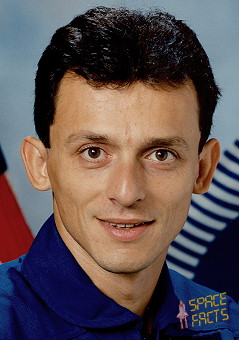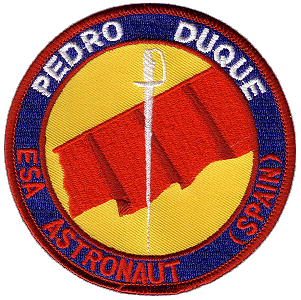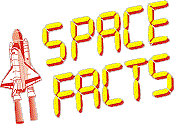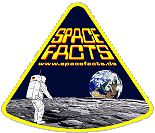Biographies of International Astronauts
![]()
DuquePedro FranciscoSpain |
 |
| hi res version (408 KB) | |
more photos |
![]()
Personal data
| Birthdate: | 14.03.1963 |
| Birthplace: | Madrid |
| Marital status: | married |
| Children: | three |
| Selection date: | 15.05.1992 |
| Selection group: | ESA-2 / EAC |
| Position: | LS / Research Cosmonaut (RC) / PSP / MSP / Test Cosmonaut (TC) |
| Status: | Ret. 07.06.2018 |
Spaceflights
| No. | Mission | Position | Time | Duration |
| 1 | STS-95 Discovery | MS | 29.10. - 07.11.1998 | 8d 21h 44m |
| 2 | Soyuz TMA-3 / Soyuz TMA-2 | Flight Engineer | 18.10. - 28.10.2003 | 9d 21h 02m |
| 3 | ||||
| 4 | ||||
| 5 | ||||
| 6 | ||||
| 7 | ||||
| Total | 18d 18h 46m | |||
 |
 |
 |
Backup assignments
| No. | Mission | Position |
| 1 | Soyuz TM-20 | Research Cosmonaut |
| 2 | STS-78 | PSP |
Additional information
|
Official name: Pedro Francisco Duque Duque,
but prefers to be called just Pedro Duque. Pedro Duque graduated with a degree in Aeronautical Engineering from the Escuela Técnica Superior de Ingenieros Aeronáuticos at the Universidad Politécnica in Madrid in 1986. Pedro Duque joined the Grupo Mecánica del Vuelo in 1986 and worked at ESA’s European Space Operations Centre in Darmstadt, Germany, to support the Precise Orbit Determination Group. Until 1992, he worked on developing models for orbit determination and algorithms, and implementing orbit computation software. Pedro Duque was also part of the Flight Control Team for ESA’s ERS-1 satellite and Eureca, the European Retrievable Carrier. In May 1992 Pedro Duque was selected to join ESA’s Astronaut Corps based at the European Astronaut Centre (EAC) in Cologne, Germany. He completed the Introductory and Basic Training Programmes at EAC and a four-week training programme at the Russian Cosmonaut Training Centre in Star City, Russia. In August 1993, Pedro Duque returned to Star City to train for the ESA–Russian EuroMir-94 mission. During that mission, which took place from October 03, to November 04, 1994, Pedro Duque was the prime Crew Interface Coordinator in the Russian Mission Control Centre in Moscow. He served as coordinator between the astronauts on Mir and the European scientists. In May 1995, NASA selected Pedro Duque as an Alternate Payload Specialist for the STS-78 Space Shuttle Life and Microgravity Spacelab mission that flew in June 1996. During the 17-day mission, Pedro Duque was one of the two Crew Interface Coordinators, communicating with researchers on Earth and the astronauts on Space Shuttle Columbia about the experiments. ESA flew five major facilities on the mission and was responsible for more than half of the experiments performed. In August 1996, Pedro Duque entered the Mission Specialist Class at NASA’s Johnson Space Center in Houston, USA. This training led to his certification as Mission Specialist in April 1998, qualifying him for assignments on the Space Shuttle. In 1999, Pedro Duque was assigned to ESA’s technical heart, ESTEC, in Noordwijk, the Netherlands, supporting the Module Projects Division in what was then the Directorate of Manned Spaceflight and Microgravity. Pedro Duque worked on Europe’s Columbus laboratory and the Cupola module on the International Space Station as crew support until 2002 and returned to this task several months after his second flight. Pedro Duque reviewed their design from the point of view of operations and maintenance, evaluated ergonomics and evaluated displays and procedures as well as participating in safety reviews. In April 2001 Pedro Duque was assigned to the first International Space Station advanced training class to 2003, when he qualified for one of the first European long-term missions to the Space Station. Pedro Duque was seconded by ESA as Director of Operations of the Spanish User Support and operations Centre in Madrid, which is managed by the Instituto da Riva and Universidad Politécnica de Madrid. He managed the implementation and first operations of the Centre until 2006. In October 2006, Pedro Duque took special leave from ESA to head an Earth observation project. He led Deimos Imaging S.L. (DMI) until 2011, first as Managing Director and then as Executive President. DMI is a private company that runs a commercial Earth observation system with its own satellite and ground stations. In October 2011 Pedro Duque returned to ESA after his special leave as member of ESA’s Astronaut Corps to head the Flight Operations Office. This Office, located at the Columbus Control Centre near Munich, Germany, supervises the work of the flight controllers and supports personnel that perform ground operations of the European module on the International Space Station and its utilisation programme. Early in 2015 Pedro Duque returned to astronaut duties and to full flight status, and among the astronauts he is responsible for the control and review of future ESA projects. Pedro Duque enjoys diving, swimming and cycling. Since June 07, 2018 Spain's new Minister of Science, Innovation and Universities. |
Personal patch
 |
|
|
Source: www.spacepatches.nl |
| © |  |
Last update on August 25, 2018.  |
 |